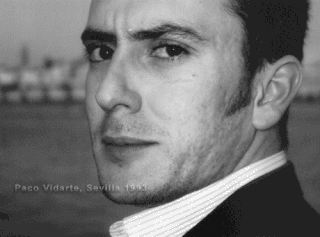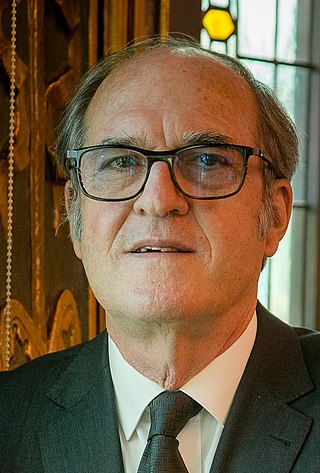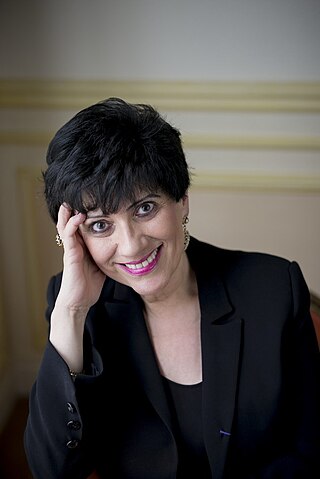
Camilo José Cela y Trulock, 1st Marquess of Iria Flavia was a Spanish novelist, poet, story writer and essayist associated with the Generation of '36 movement.

Agustín García Calvo was a Spanish philologist, philosopher, poet and playwright.

Ignacio Martín-Baró was a scholar, social psychologist, philosopher and Jesuit priest. He was one of the victims of the 1989 murders of Jesuits in El Salvador.
Chantal Maillard is a contemporary Spanish poet and philosopher.
Carlos Castrodeza Ruíz de la Cuesta was a Spanish biologist and philosopher. He taught philosophy of science at Madrid's Complutense University.

Juan David García Bacca, was a Spanish–Venezuelan philosopher and university professor.

Francisco "Paco" Javier Vidarte Fernández was a Spanish philosopher, writer and LGBT activist.
Antoni Rubió i Lluch was a Spanish historian and intellectual, and a Catalan patriot influenced by the Catalan Renaissance. A Hellenist and a medievalist, he left his mark on the study of the Catalan presence in fourteenth-century Greece.

José Bergamín Gutiérrez was a Spanish writer, essayist, poet, and playwright. His father served as president of the canton of Málaga; his mother was a Catholic. Bergamín was influenced by both politics and religion and attempted to reconcile Communism and Catholicism throughout his life, remarking "I would die supporting the Communists, but no further than that."

Rubén Caba, born in Madrid, is a Spanish novelist and essayist. Degrees in Law and in Philosophy at de Universidad Complutense de Madrid. And graduated in Sociology at Instituto de Estudios Políticos, Madrid.

Iris M. Zavala was a Puerto Rican author, scholar, and poet, who later lived in Barcelona, Spain. She had over 50 works to her name, plus hundreds of articles, dissertations, and conferences and many of her writings, including "Nocturna, mas no funesta", build on and express this belief.

Juan Arnau, Spanish philosopher and essayist, a specialist in Eastern philosophies and religions.

Maria Aurelia Capmany i Farnés was a Catalan novelist, playwright and essayist. She was also a prominent feminist cultural and anti-Franco activist.

Montserrat Torrent i Serra is a Spanish organist.

Ángel Gabilondo Pujol is a Spanish university professor, currently serving as the 6th Ombudsman of Spain.
Jerónimo Cortés was a Spanish mathematician, astronomer, naturalist and Valencian compiler.

Rosa Cobo Bedía is a Spanish feminist, writer, and professor of sociology of gender at the University of A Coruña. She is also the director of the Center for Gender Studies and Feminists at the same university. Her main line of research is feminist theory and the sociology of gender.

Fernando José "Ferran" Gallego Margaleff is a Spanish historian and writer.

Antonio Piñero Sáenz is a Spanish philologist, writer, and historian, specializing in the Judaism before Christianity, the life of Jesus of Nazareth, the founding of Christianity, and language and literature of the New Testament and early Christianity from a scientific perspective. He is especially known in the Spanish-speaking world for the authorship of numerous books and research articles, and for his active outreach efforts.

Madeleine Scopello is a French historian of religion. She is director of research at the CNRS and director of studies at the École pratique des hautes études. She also teaches at the Institut catholique de Paris, Faculty of History.
















